14 Faculty Awarded for International Impact
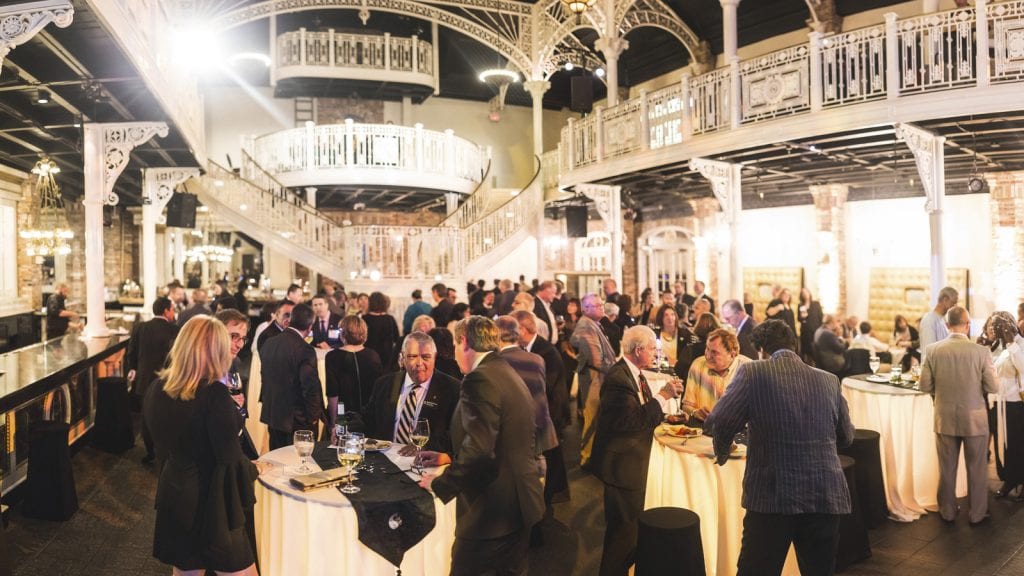
UCF recognized 45 faculty members Wednesday during the university’s inaugural Luminary Award presentations for making an impact on the world. Fourteen of the recipients are College of Sciences faculty members.
The event, themed like Oscar night, honored those who are academic leaders in their field and are making contributions to the world that are having a significant impact.
“Merriam-Webster defines a luminary as a person of prominence or brilliant achievement,” said President John C. Hitt during the ceremony. “At UCF, we dare to dream big. As expressed in our Collective Impact Strategic Plan, we use the power of scale and the pursuit of excellence to solve tomorrow’s great challenges and make a better future for our students and society. Key to our mission is a vibrant and dynamic faculty. In various ways, the honorees help fulfill our vision of enhancing ever more lives and livelihoods through the power of higher education.”
The new awards are meant to not only recognize funded research, but also the many kinds of creative works and scholarships that are just as important to the well-being of our society, said Elizabeth Klonoff, vice president of the Office of Research and dean of the College of Graduate Studies. She and Cynthia Young, a former vice provost, created the Luminary Awards.
“It was an amazing opportunity to be able share the accomplishments of our faculty and to recognize them for the impact of their work,” Jana Jasinski, Ph.D., Interim Vice Provost for Faculty Excellence, Pegasus Professor of Sociology and Associate Dean for the College of Sciences said.
Deans, chairs and directors from across the university nominated candidates based on the nominees’ past three years of performance. A panel from the Office of Research selected the winners.
This year’s recipients are:
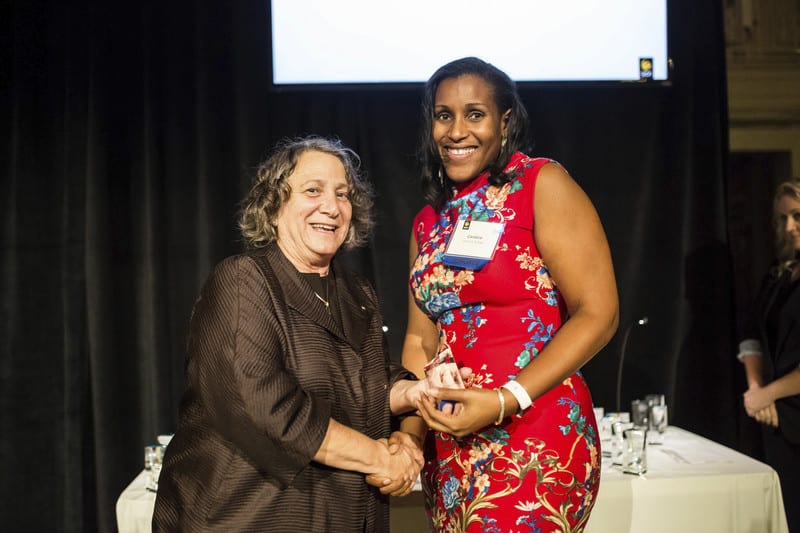
Candice Bridge, National Center for Forensic Science, Chemistry
Bridge was inspired to pursue forensic science when she was home sick as a young girl. She happened to catch a murder mystery show. Later, she would go on to become one of the first people in the nation to earn a forensic Ph.D. Not only is her research focus tough – finding new forensic science techniques to aid in sexual assault investigations – but it’s also tough to get people to talk about it. Today, she is bringing victims hope for justice when there may not have been hope before.
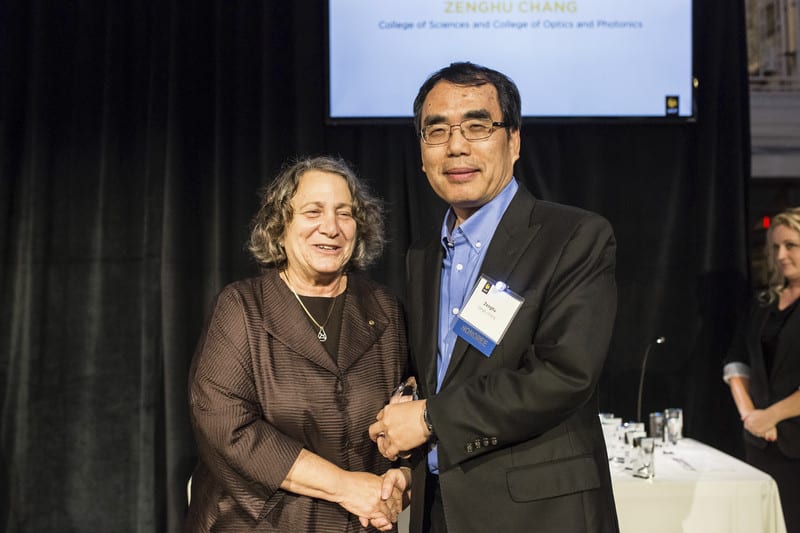
Zenghu Chang, Physics
Pegasus Professor Chang loves a challenge. He and his team produced the shortest-ever laser pulse in 2012, a 67-attosecond X-ray flash. Then in 2017, he beat his own record, creating a laser pulse of 53 attoseconds. For the non-physicists in the room, he’s essentially developing technology to shoot slow-motion video of electrons and how they interact with atoms. That would open up the world of quantum mechanics to us, and help us leap ahead in the development of the next-generation logic boards and memory chips for mobile phones and computers.
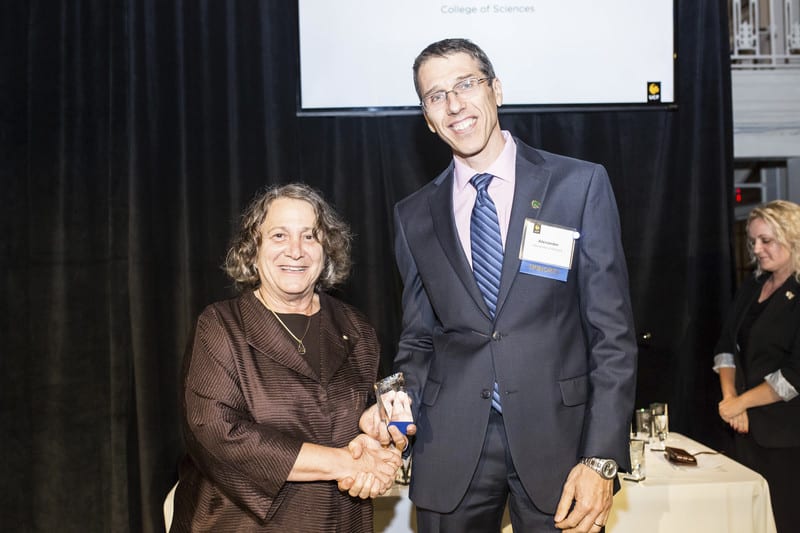 Alexander Katsevich, Mathematics
Alexander Katsevich, Mathematics
Professor Katsevich’s work is creating algorithms for modern computerized CT scans that have had an international impact in math and medical fields. His work has been licensed to big companies such as Siemens, Nikon and Toshiba. In 2016, he received the Marcus Wallenberg Prize, which is the highest prize in the world in the forestry industry for scientific achievements that contribute to broadening knowledge and technical development.
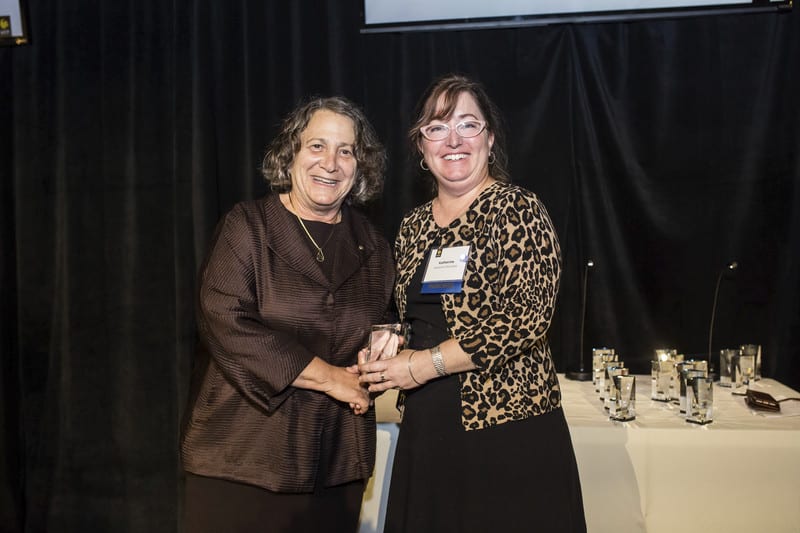
Katherine Mansfield, Biology
Mansfield is a biologist who uses cutting-edge technology to research threatened and endangered sea turtles with a goal of understanding their behavior and life cycles to guide conservation efforts. She translates her research into common speak so the general public can understand what she and her team do and why it matters, which makes her not only a highly respected scientist but also a tremendous spokesperson for the STEM fields, conservation and women in science.
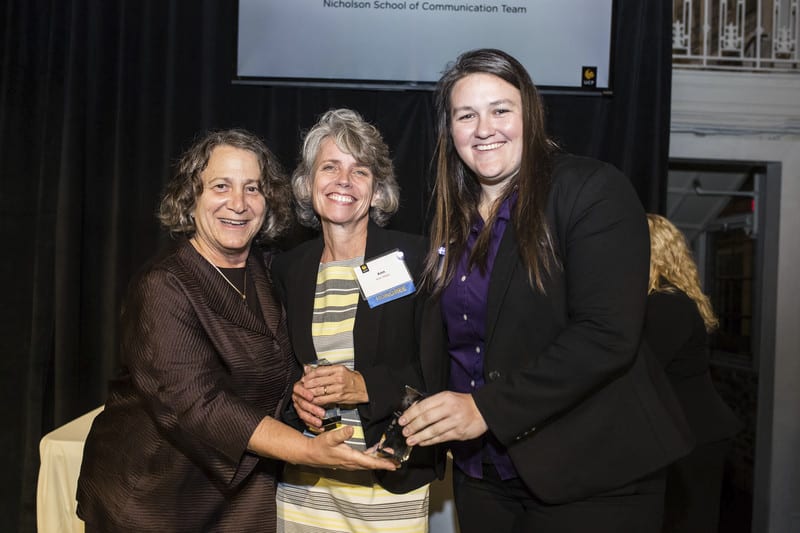 Ann Miller, Lindsay Neuberger and Timothy Sellnow, Nicholson School of Communications Team
Ann Miller, Lindsay Neuberger and Timothy Sellnow, Nicholson School of Communications Team
Miller, Neuberger and Sellnow combined their expertise in global health research, collaborating with community partners and risk communicators to have a major impact on the world. Their work has helped shape the World Health Organization’s guidelines for communicating risk in public health emergencies.
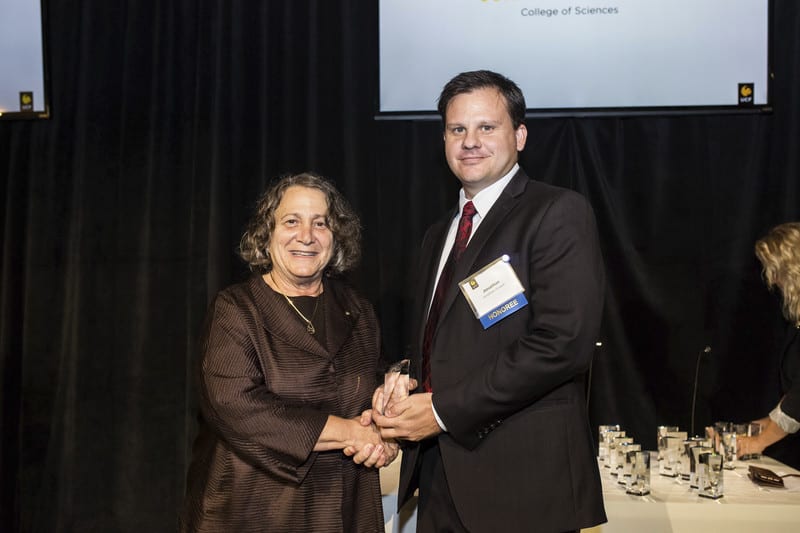 Jonathan Powell, Political Science
Jonathan Powell, Political Science
Powell’s work has been recognized by academia and the international stage of politics, where his area of expertise is conflict studies. He has been sought out by national agencies and foreign governments for his counsel post coups in different parts of the world. And his teaching has been adopted into the syllabi of multiple institutions such as the University of Chicago, Ohio State and University of Oslo, among others.
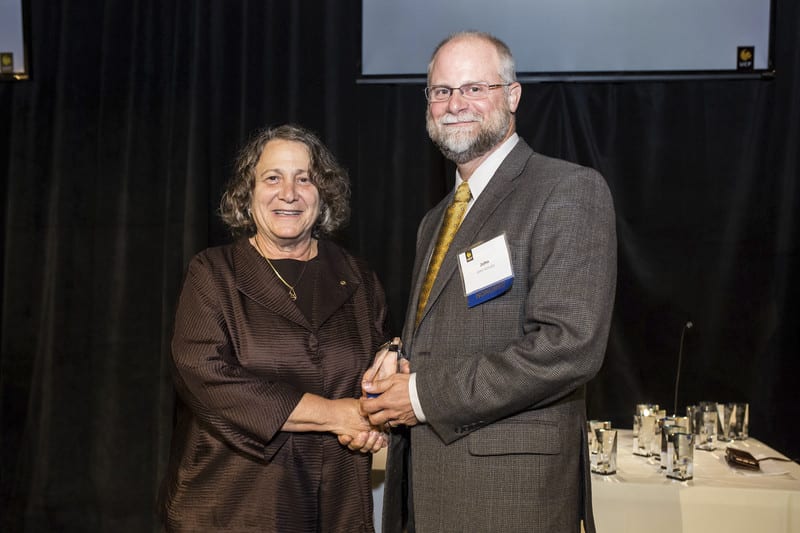 John Schultz, Anthropology
John Schultz, Anthropology
Schultz is a biological anthropologist with a world-wide reputation. His research focus is forensic anthropology and grave and body detection. He is often called as an expert witness in criminal cases. He is a Fellow of the American Academy of Forensic Sciences. His work is highly cited, and his partnerships give graduate students hands-on opportunities that lead to jobs in the forensic field.
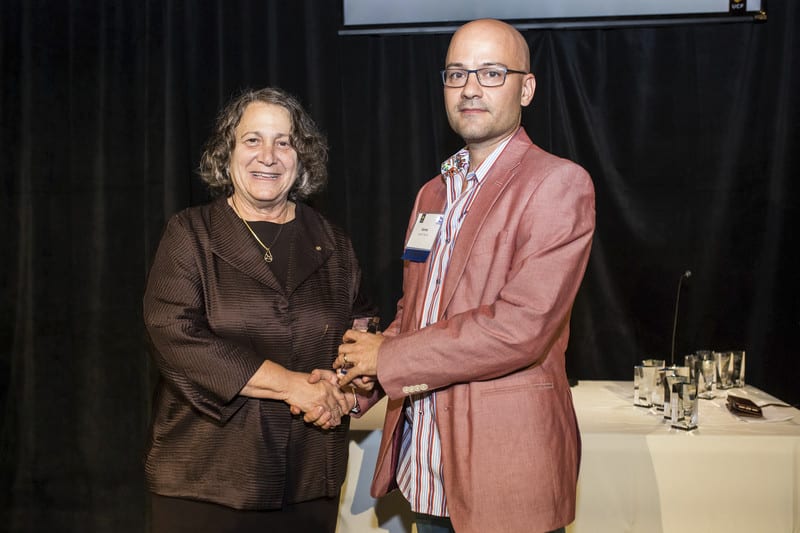 Gunes Murat Tezcur, Kurdish Political Studies Program, Political Science
Gunes Murat Tezcur, Kurdish Political Studies Program, Political Science
Tezcur’s work asks the question, “what motivates ordinary people to risk their lives and join insurgent movements.” His research, published in the highest-ranked political science journal – a first for any UCF professor – is based on data collected from more than 9,000 insurgents from Kurdish areas. His work is helping us better understand terrorism recruitment and potentially how we can prevent it.
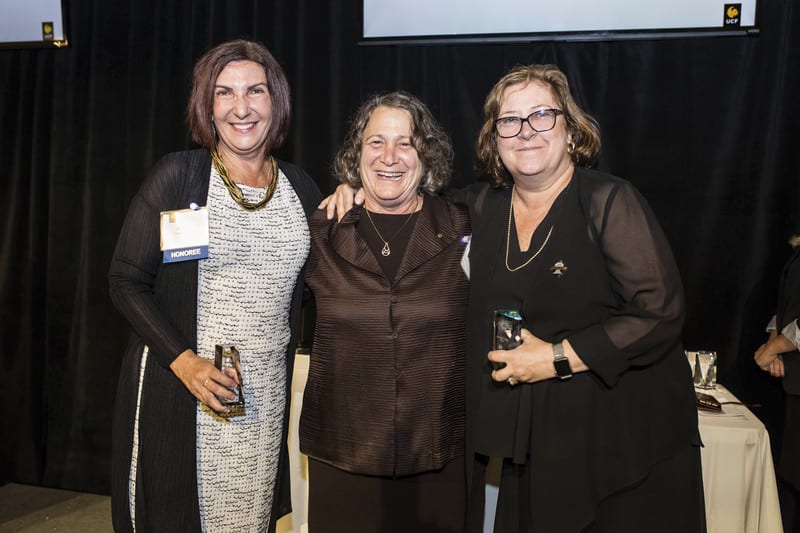 Deborah Beidel, Clint Bowers and Sandra Neer, UCF RESTORES Team, Psychology
Deborah Beidel, Clint Bowers and Sandra Neer, UCF RESTORES Team, Psychology
This team of experts piloted a program to help veterans from the Iraq and Afghanistan conflicts who are suffering from combat-related PTSD. The program uses established behavioral methods augmented by virtual reality to provide an enhanced treatment experience. Early research shows RESTORES is more effective than traditional methods. The work is so promising that state and federal agencies have provided more than $2 million to continue their effort.
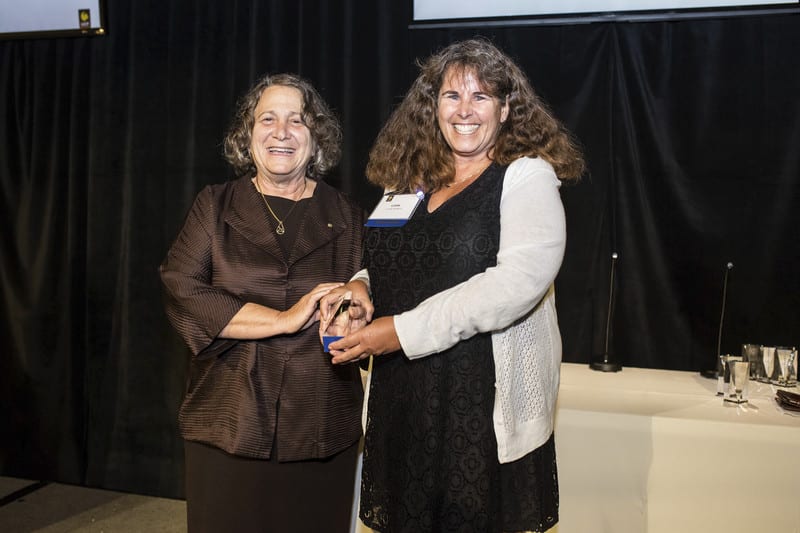 Linda Walters, Biology
Linda Walters, Biology
Walters’ research quantifies and seeks to understand the long-term coastal ecosystem impacts and responses. Her work helps resource managers make informed decisions. In addition to her lasting impact as Pegasus Professor, she has created a legacy program at UCF. Dr. Walters has more than $4 million in grant funding and is collaborating on at least $8 million worth of projects.
Congratulations to this year’s recipients.
Photo credits: Austin Warren, UCF
